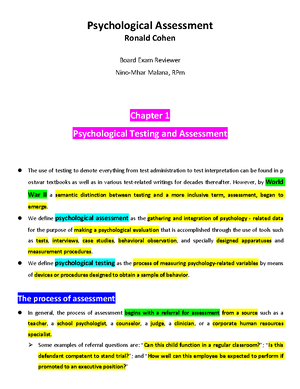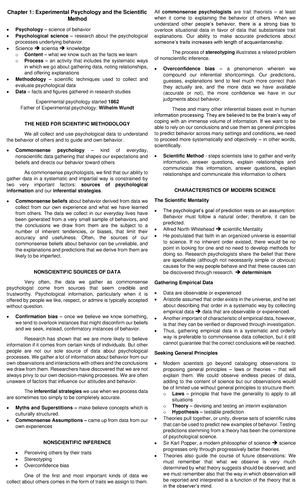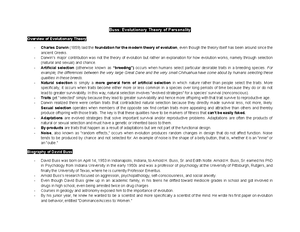- Information
- AI Chat
Was this document helpful?
Forensic Psych
Course: BS Psychology
999+ Documents
Students shared 2875 documents in this course
University: Polytechnic University of the Philippines
Was this document helpful?

1893- first psychological experiment on the psychology of testimony is conducted by J. McKeen Cattell
at Columbia University.
1903- Lewis William Stern of Germany establishes a periodical dealing with the psychology of testimony
1906- publication of a little-known work, Psychology Applied to Legal Evidence and Other Constructions
of Law by George Frederick Arnold
1908-publication of Hugo Munsterberg’s On the Witness Stand, arguably one of the first professional
books on forensic psychology. Some scholars consider the author, a Harvard professor of psychology,
to be the father of forensic psychology
1908- Social science brief submitted to an appellate court, the Oregon Supreme Court in Muller V
Oregon.
1909- Clinic for juvenile offenders established by psychologist Grace M. Fernald and psychiatrist William
Healey.
1911- J. Varendonck becomes one of the earliest psychologists to testify in a criminal trial held in
Belgium.
1913- the first time that psychological services are offered within a U.S. Correctional Facility (a women's
reformatory in New York State), by psychologist Eleanor Roland.
1917- Psychologist lawyer William Marston develops the first “polygraph.” Shortly thereafter, his
expert testimony on the polygraph is rejected by a federal court (Frye V. United States, 1923) because
the polygraph, by then, lacked general acceptance by the scientific community.
1917- Louis Terman becomes the first American psychologist to use psychological tests in the screening
of law enforcement personnel.
1918- first inmate classification system was developed by psychologists, and established by the New
Jersey Department of Corrections. New Jersey also becomes the first state to hire full-time
correctional psychologists on a regular basis.
1921 first time an American psychologist testifies in a courtroom as an expert witness (State v. Driver,
1921)
1922- Karl Marbe, a psychology professor at the University of Wurzburg, Germany, becomes the first
psychologist to testify at a civil trial.
1922- William Marston becomes the first to receive a faculty appointment in forensic psychology as a
“professor of legal psychology” at American University.
1924- Wisconsin becomes the first state to provide comprehensive psychological examinations of all
admissions to its prison system and all applications for parole.
1929- Psychologist Donald Slesinger is appointed associate professor at Yale law school, qualifying him as
the first psychologist granted faculty status in an American law school









